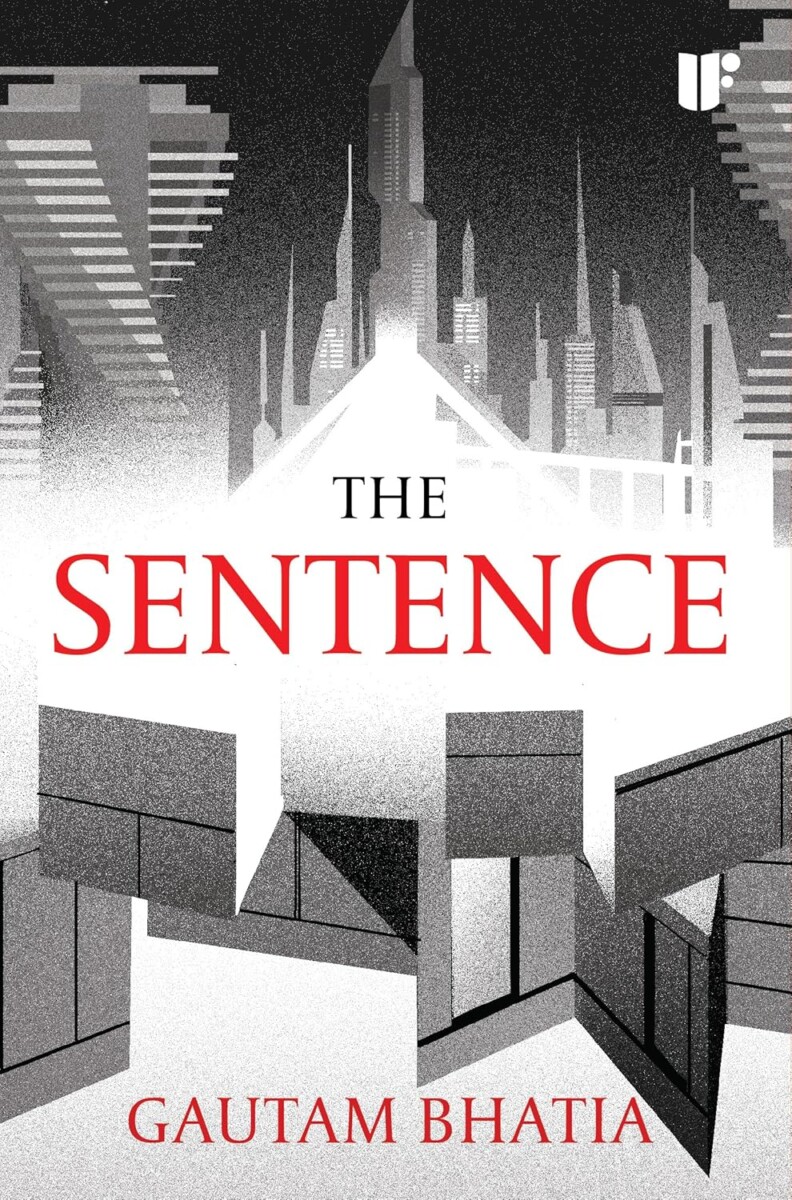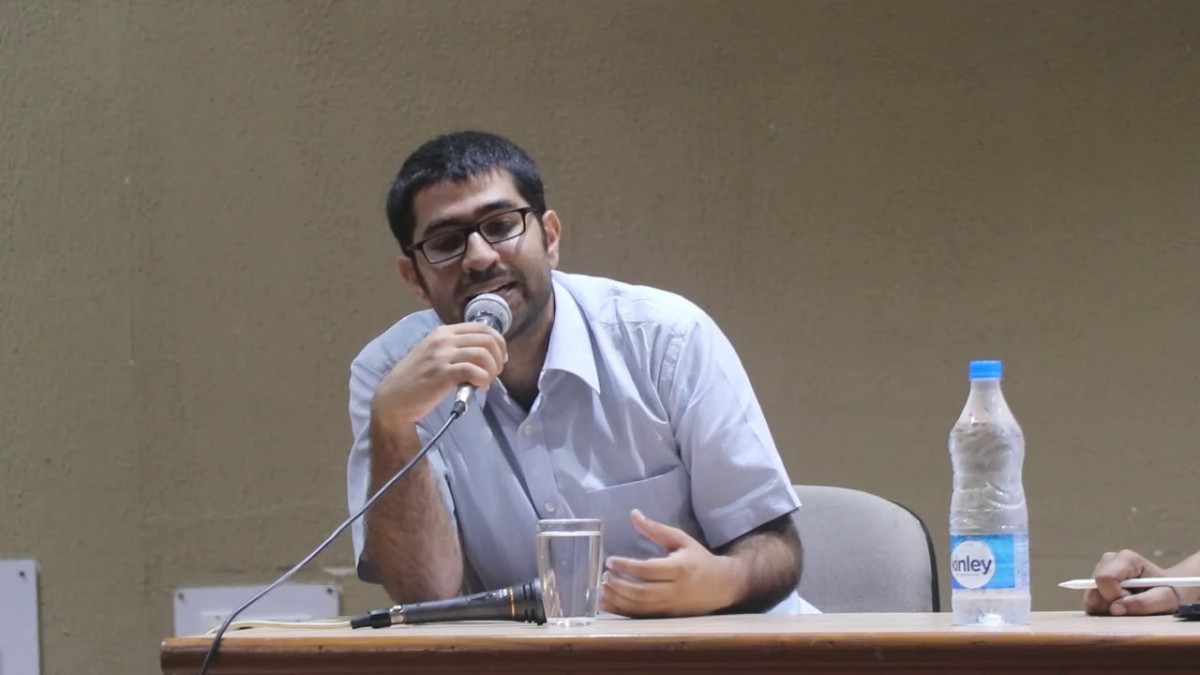Gautam Bhatia's 'The Sentence' Centres on a Legal Case of Immense Gravity
Gautam Bhatia is one of India’s finest legal commentators, offering a clear, precise summary of what is happening in major legal cases, as well as providing a historical and intellectual framework through which to understand these things. He is also a science fiction writer, and in his second book of fiction, The Sentence, the story is based on a legal case of immense gravity.
The world building in The Sentence, as with Bhatia’s previous science fiction novel, The Wall, is ambitious. The story is set in the city-state of Peruma, which is divided into High Town – where the owners of the corporations that run the Mandalium mines – and Low Town, where the workers live. Once Peruma was an empire spanning a subcontinent, but a series of revolts broke up Peruma’s empire and led to the rise of several city states. A century before the main action of the novel, the Director of the Council that governs the city is assassinated, setting off repression and civil war until an uneasy truce is arranged for a hundred years with Low Town and High Town governed separately by the Council and the Commune, and a “Free and Equal Confederation of Guardians”, a judiciary composed of equal numbers of people from both the factions who have sworn neutrality as they implement the temporary Constitution in place.

Gautam Bhatia
The Sentence
Westland IF, 2024
The hundred years of truce, and the Constitution full of compromises, referred to mockingly as the “cop out Constitution” by a group of anonymous satirists known as the Wits, is to be opened for judgment. But something else is happening alongside. The person convicted of assassinating the Director a century ago, Jagat, is about to die. The “sentence” of the title is something of a suspended death sentence. Peruma has mastered the technology of cryo-freezing and revival, and – as a consequence – reinstated the death penalty it had previously abolished. The process can keep somebody in a cryogenic state for about a hundred years before decay sets in. The judiciary had reinstituted the death penalty with the proviso that, if evidence for innocence was presented within a century, the convicted could be revived. There is a dissent, by Justice Khana, and it is one of the finest pleasures of the book, exemplifying Bhatia’s lucid and beautiful writing on legal matters.
At the centre of all of this is a last year student at the Confederation, Nila M. Originally from the Commune, with her mother as one of the leaders that the Commune insists it does not have, she hopes to be one of the 12 pupils to argue in Commune vs Council for the case of the century. She has reason to hope she will be picked, as she has been a stellar performer. Her roommate and classmate, Maru, is a quieter sort, focussing on issues of medical liabilities, much of them having to with the mining of Mandalium on which the economy of Peruma, as well as its permanent conflict between owners and workers, depends. And then everything goes sideways, and of all things Nila is approached by a descendant of Jagat to prove his innocence in the few days that he has left, before they unplug him. It is a case of unprecedented importance, and one designed to blow the history and peace of the contentious city-state wide open.
Starting off somewhat slowly, which is necessary to understand the sheer heft of details that shape the case, the novel picks up speed about a third of the way in, and then continuously ratchets up the pace until the end of book is a sprint. Set within a period of seven days, and premised around a legal case, the novel devotes relatively little time to character development except for that of Nila; instead the heart of it is the difficult moral and judicial questions and an investigation that manages to surprise at almost every turn.

Gautam Bhatia during a panel discussion in August 2019. Image: YouTube
The attention to detail is both comprehensive as well as sketchy, if that is possible. We have everything from a performance of traditional sword fighting brought together by the Urumi Collective, reflecting the name of the famous South Indian whip swords, to the design of the assassinated Director’s samadhi, as well as the confusion of streets in the Commune’s anarchic organisation. “Here was a city without a centre, without fixity, a city that moved like a breeze upon the water. If you wanted to see the administration (as Nila did) you would find out that morning where they were meeting; if you wanted to visit the museum of the library, you would have to track their movement through the topography of the city, and visit them where they were.” What suffers in the process is the human element, and it does not necessarily have to. Bhatia has done some fantastic reading to shape it – the Appendix is a fine trawl through revolutionary history – but while the intellectual element is there, the human element is somewhat wanting.
For example, Ursula Le Guin’s Earthsea books are a fantastic treatise on the tensions of ownership and freedom, involving a radically different world inhabited by dragons and with magic, and yet all those complicated aspects emerge and shape the human condition, from a lonely goatherd to an abandoned orphan. Terry Pratchett’s Night Watch, full of his comic asides, puns and pratfalls, is a very jester’s take on the Parisian Commune and primarily about how people experience revolution. In contrast, The Sentence, as intelligent as it is, offers only a glance of what it feels like to be involved in such matters. But then, Le Guin and Pratchett’s were masters of their art, and to compare any writing to theirs, even in criticism, is itself high praise.
Omair Ahmad is an author. His last novel, Jimmy the Terrorist, was shortlisted for the Man Asian Literary Prize, and won the Crossword Award.
The Wire is now on WhatsApp. Follow our channel for sharp analysis and opinions on the latest developments.




